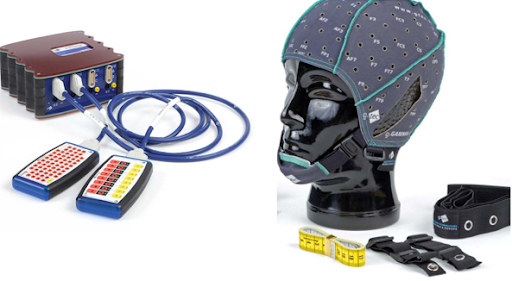Identifying predictive bioindicators – for stroke patients
In this project researchers work to identify predictive bioindicators of brain activity in the cerebral cortex (outer layer of the brain) of stroke patients – indicating their condition, progress, and response to treatments, and offering prognosis for full or partial recovery.
Identifying neural circuits – for bipolar disorder
The researchers are developing objective, measurable tools, based on brain signals, for diagnosing and monitoring different types of bipolar disorder, and identifying individuals who might be prone to this disorder. A special helmet records the brain activity of people with and without bipolar disorder as they are subjected to a range of emotional stimuli, applying two different technologies – EEG (measuring electrical signals) and fNIRS (estimating cortical hemodynamic activity which occurs in response to neural activity). Findings indicate a difference in brain activity between people with bipolar disorder (as well as their close family members) and the control group. The researchers are also investigating the hypothesis that bipolar disorder is linked to abnormal brain-body interactions, manifested through altered heart-brain responses and dynamics.
Partners: Israel’s Ministry of Science and Technology; Sha’ar Menashe – Israel’s largest Mental Health Center; a mental health center in Grenoble, France; and the Max Plank Institute in Berlin. The IDF has expressed interest in the study, which can help identify recruits prone to bipolar disorder.
Monitoring neural circuits – for Parkinson’s disease
Researchers at the BCI Lab are developing tools for monitoring the brain activity of individuals with Parkinson’s disease, with a special focus on a known difficulty: performing cognitive tasks concurrently with motor functions, such as walking.
Partner: The Laboratory for Gait and Neuro-dynamics at the Tel Aviv (Ichilov) Medical Center





